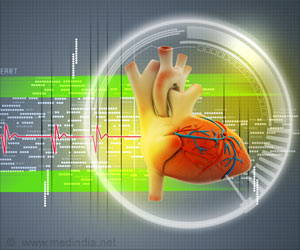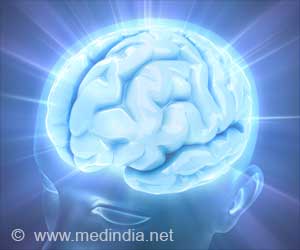Dr. Ejaz Ahmed Sheriff performed a piggyback heart transplant in Chennai at the Madras Medical Mission (MMM) Hospital. Medindia interviewed him to find out more about the novelty of such a heart transplant.
- Unique surgery leaves a 100kg man with two beating hearts by a technique called the ‘Piggyback or Heterotopic heart transplant surgery’
- Surgery which was performed in Chennai by Dr. Ejaz Ahmed Sheriff is very unusual of its kind
- Be an Organ Donor: Let your Heart Beat Continue
Read More..

Recently Dr. Ejaz Ahmed Sheriff, who did a piggyback heart transplant in Chennai at the Madras Medical Mission Hospital. We decided to find more about this transplant and interview him.
Q. Could you please explain to our members, what you mean by Heterotopic Heart Transplant and how it is different from a routine heart transplant?
A. In a routine heart transplant, the existing organ, the heart, is removed from its position and in its place, we keep a new organ, the donor organ. This is a routine heart transplant. This type of transplant is called an orthotopic heart transplant.
A heterotopic heart transplant means the original organ is retained; it is not removed. But the new organ, the donor's heart is placed by the side of its original organ and connected by means of a series of connections through a complex surgery, and both hearts are made to work together. In layman’s terms, it is called a piggyback surgery, like somebody having additional baggage. The new heart takes a major load, the existing heart, the diseased heart, also, does its own function.
Q. What are the indications for Heterotopic Heart Transplant?
Next, if you get a sub-optimal organ when you know that the new donor heart is not alone sufficient to function, then you give it an additional heart, a heterotopic heart transplant.
Q. What is the status of heart transplants in India?
A. The transplant scenario is picking up in the past ten years, with much awareness among the public, and also the health care officials. In fact, Madras Medical Mission is one of the pioneering hospitals, especially by Dr. KM Cherian, who worked hard and helped with organ donation legislation too in the early years. He then went on to perform some of the first few heart transplants in India in the year 1995.
From 2012 to 2017, there have been 300 heart transplants procedures conducted in Tamil Nadu. In India, the exact figures are not available, but it may be close to 500 to 600 transplants over the years.
Q.Why is Tamil Nadu doing well in the program?
A. This is due to credit to TRANSTAN which is the Tamil Nadu’s transplant authority, which is an autonomous body, they are the ones who have regulated and formulated the protocols, the procedures and the guidelines of how this has to be streamlined.
MOHAN Foundation started organ sharing in the year 2000 and laid the foundation for organ sharing until the Government took over the program in the year 2009. This NGO also trained a huge number of organ coordinators and conducted many ICU workshops besides creating awareness about the program. These are the pillars or the backbone for the program. Whenever there is a suitable donor available, the organ donor coordinators go speak to the family, convince them, tell them about the benefits, and start the process of doing the transplantation or organ donation. Since this streamlined methodology is there, overseen by the government body, then we are able to run it successfully well.
Q.Is there a gap between demand and supply of hearts?
A. Not much. I think we are having a good supply of hearts in our country.
Q. Why are we not doing as many heart transplants in India – what are the reasons & challenges?
A. In India, TRANSTAN is only working for the Tamil Nadu level. In the all-India level, we have been receiving awards among all the states for the past three consecutive years. If the same methodology is emulated in other states, then maybe the overall numbers in India will increase.
In Kerala, they initially adopted the Tamil Nadu model but, some litigations has stalled the whole program. So Kerala is hardly doing any transplants nowadays. So, when a state fallout happens, then it becomes difficult. In Tamil Nadu, we are able to continue the service. So this has to go everywhere in every state, then the numbers will be more.
Q. It is said that the heart transplant recipients can sometimes develop the same likes and dislike as the donor – Have you come across any such case.
A. It is interesting, and one patient of mine had it. The patient came from Hyderabad; we gave him an organ from a local Tamil patient. When the gentleman came for review after three months, his wife told that he had started demanding for sambar and rasam-like stuff. She asked me the same question, whether her husband's likes and dislikes have changed according to the new heart. Actually, I had no answer to this. Even now, I do not have an answer to this. This is only a personal experience.
Q. How should the common man take care of his heart?
A. A proper lifestyle is what is required for everybody. A disciplined lifestyle, avoiding junk food, regular exercise, not smoking, sleeping for 6 to 8 hours, and avoiding stress would help the heart to remain healthy and beat for long. What is happening today was unheard of in my father’s generation or the previous generation.
I also observe that people from rural areas are more healthy - a 60-year-old man without cataract surgery, seeing well, no diabetes and no hypertension, I think lifestyle is one of the major factors to have good health.
Q. Any take-home messages on Organ Donation?
A. I would say the organ donation has to be spread much more in public. Everybody should think about donating the organ which will benefit someone dying for an organ, who are our fellow being. So the awareness, organ pledging is very important. Whoever pledges his organ, his kith and kin after the person’s demise have to honor it and fulfill his wishes, his will. And more models like the one in Tamil Nadu should evolve in the country.
Source-Medindia













